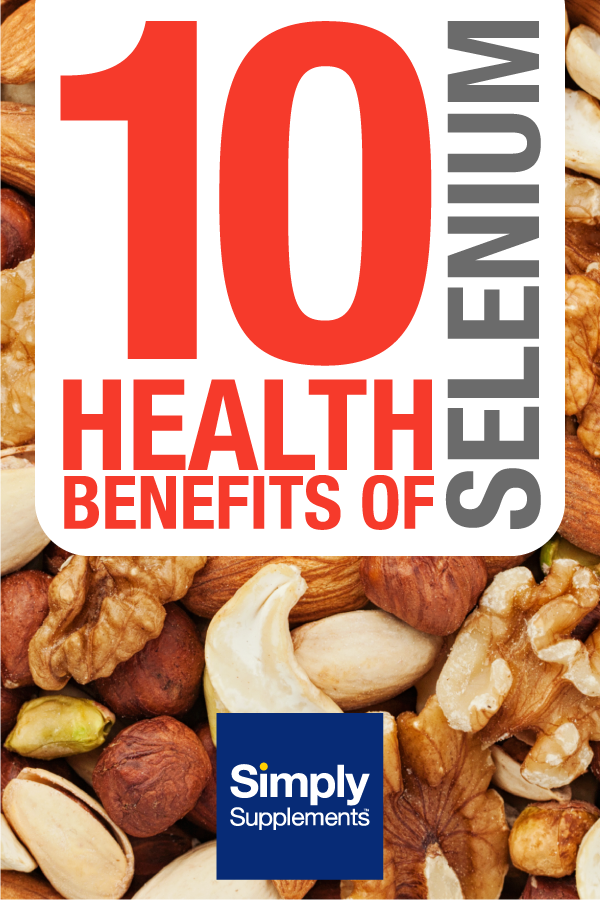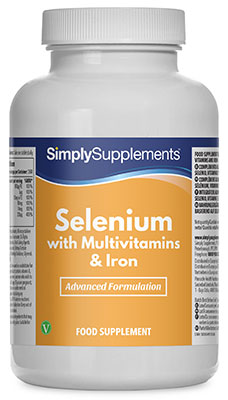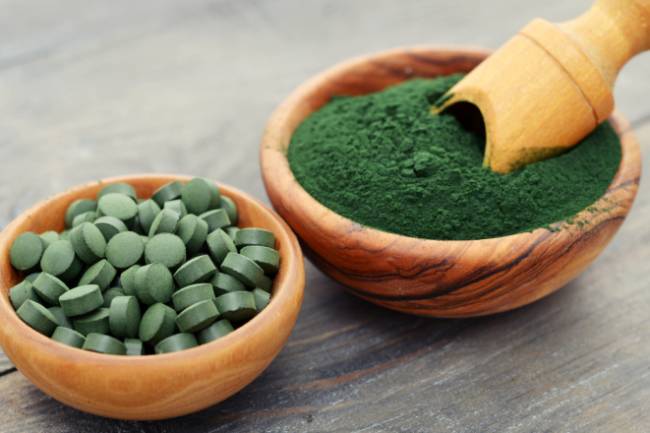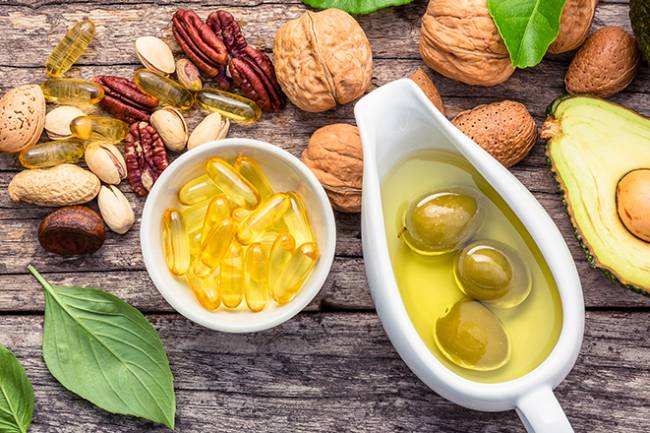Health Benefits of Selenium

Selenium has been hailed as a cure for a whole host of ailments, including heart disease, thyroid problems, cancer, and even dandruff. But what can selenium actually do? We examine the supporting evidence for the health benefits of selenium.
What is Selenium?
Selenium is an essential trace mineral mainly derived from soil, water and plants. It was discovered accidentally during the early 19th century by a Swedish chemist called Jons Jacob Berzelius and has since become popular for its antioxidant ability to slow down premature ageing and the progression of disease.
Following absorption, selenium is incorporated into proteins such as enzymes (selenoproteins). Selenoproteins are a family of proteins that contain selenium in the form of an amino acid and their activity is dependent on an adequate supply of selenium in the diet. There are thought to be around 25 different selenoproteins, but only half of these have had their functions identified.
Selenium Benefits
Although it is only needed in small amounts, selenium works at a cellular level and so is essential for the proper functioning of many different processes in the body. Here are the key ways selenium benefits health:
- Cell protection: Selenium is used to produce enzymes called selenoproteins, which work as antioxidants to protect cells and DNA against free-radical damage. If left unchecked, this damage can accelerate the ageing process and lead to the development of cell mutation and diseases. 200mg per day is advised for effective antioxidant protection.
- Heart disease: The mineral helps to fight inflammation and acts as a blood thinner to prevent the build-up of fatty plaques along artery walls and reduce the risk of blood clots. Low levels of selenium may increase the risk of cardiovascular disease and heart failure but, to date, only observational studies have been conducted, which are hard to draw solid conclusions from.
- Inflammation: Selenium helps to regulate the production of prostaglandins and may reduce inflammation throughout the body. Studies show a strong correlation between low selenium levels and an increased risk of rheumatoid arthritis, however, it is unclear if low selenium levels are a result of the condition or a contributing factor.
- Immunity: Selenium is required for the proper functioning of the immune system. It helps to stimulate the activities of white blood cells (antibodies) and fend off infections and viruses. One study found that participants taking selenium and zinc supplements responded better to the flu vaccine, compared to those taking a placebo.
- Fertility: Selenium is important for both male and female fertility. It protects the eggs and sperm against chromosomal damage which can increase the risk of miscarriages and birth defects. Low sperm counts are often associated with low levels of certain minerals, including selenium, iron and zinc.
- Cancer: Several large-scale studies have examined a possible link between low selenium levels and higher incidences of prostate cancer, lung cancer and bladder cancer. The Cochrane Review in 2011 found that people with higher selenium intakes had a 31% lower rate of cancer, compared to those with the lowest intakes. It is thought that selenium enhances the way the body responds to cancerous activity by inducing apoptosis and triggering the death of cancerous cells without harming healthy cells.
- Thyroid function: There is a clear link between low selenium levels and impaired thyroid metabolism. Selenium is highly concentrated in the thyroid gland where it acts as a catalyst for the production and metabolism of thyroid hormones. When selenium levels are low, the thyroid gland has to work harder to produce hormones, and the body has a trickier time converting these hormones into cells it can use. It also helps the body to recycle iodine, which is well known to support thyroid function.
- Cataracts: It is thought that the antioxidant behaviour of selenium also helps to reduce free-radical damage in the eyes and low blood levels of selenium are often found in those with cataracts. However, no studies to date have found a direct link between increasing dietary intake of selenium and a reduced risk of cataracts. Research is ongoing.
- Hair growth: Selenium helps the body to use proteins, including those that make up the hair, which is why low selenium levels are often associated with hair loss. Selenium is toxic to the scalp fungus that causes dandruff so is often a key ingredient in anti-dandruff shampoos.
- Skin conditions: Its antioxidant ability to defend against oxidative damage helps to slow the ageing process. It also assists in the recovery of tissues in the skin, which may offer some relief from itching and swelling associated with common skin conditions such as psoriasis and eczema.
Sources of Selenium
Our bodies cannot make selenium so it needs to be consumed through dietary sources. It is present in foods as the amino acids selenomethionine (cereals) and selenocysteine (animal products), which are converted and used in the body. In some plants, up to 50% of selenium content may be in the form of selenate (leaves of beets and cabbage, and garlic).
Good selenium foods often include:
- Nuts, particularly brazil nuts
- Seafood, particularly tuna, shrimp and sardines
- Meats, including chicken and beef
- Mushrooms, particularly shiitake or white button varieties
- Fresh broccoli, cabbage and spinach
- Brewer’s yeast and wheat germ
The selenium content of food is dependent on the concentration of selenium in the soil where the food is grown. Around the world, soil quality can vary widely and as a result, people’s selenium levels can vary geographically. It is generally considered to be low quality in the UK and Europe.
Selenium Levels in the UK
Selenium levels in the UK have fallen over recent decades; in 1978 the average intake was reported to be 60mcg per day, while a later report published in 1994 estimated the average intake had dropped to 34mcg per day. This drop was related to changes in food consumption patterns and the move away from using selenium-rich wheat from North America to European flour for bread making.
The general opinion is that selenium levels in the UK are too low and that there is an increasingly strong case for supplementation. Selenium-enriched foods have also been proposed by scientists as a means of ensuring adequate intakes.
Selenium Deficiency
While low levels of selenium are fairly common, a selenium deficiency is rare. There are several reasons why a person might have low selenium levels:
- Poor diet: Selenium is stripped from many processed and refined foods
- Smoking: Studies show that smokers have lower levels of selenium compared to non-smokers
- Where you live: Selenium levels are higher in the south of England than the north
- Age and mobility: The risk of deficiency increases in the elderly living in residential or nursing homes, compared to free-living patients
- Trauma or burns patients
- Vegetarians: In countries with low selenium status
- Gastrointestinal disorders such as Crohn’s disease
- Stomach surgery impairs your ability to absorb nutrients from food efficiently
When the body has low levels of selenium, it uses its stores for essential processes, while other non-essential processes go without. The first signs of a selenium deficiency often include:
- Muscle weakness
- Fatigue
- Whitening of the beds of the fingernails
- Discolouration of the hair or skin
- Poor growth
- Infertility
- Premature ageing
- Dandruff
- Thyroid problems
Low selenium levels are often easily reversed with an increased intake of foods or supplements. However, a severe deficiency can result in Kashin-Beck disease; a chronic bone disease that causes osteoarthritis at a very young age. This condition is particularly common in countries with very low selenium status, such as parts of northeastern and southwestern China.
How Much Should I Take?
The current recommended daily allowance (RDA) for selenium is 75mcg for men and 60mcg for women. However, if you are in one of the ‘at risk’ groups mentioned above, you may need higher intakes to cover losses from the diet. 200mcg per day appears safe for long-term use, while dosages as high as 700mcg a day are safe for short-term use.
Selenium toxicity is rare but intakes above 750mcg should be avoided. Taking too much can result in selenosis, symptoms of which include garlic-odour breath, brittle nails, tooth discolouration, intestinal complaints, and hair loss. Consult with your doctor if you are concerned you may have consumed too much.
It is best to take selenium supplements in combination with food and vitamin E because they facilitate each other’s absorption. Many supplements will combine the two. There are two different forms of selenium supplements; chelated and non-chelated. Both are useful and there is no evidence to suggest that chelated selenium is better absorbed than non-chelated selenium.
Side Effects and Interactions
When taken within the recommended guidelines, selenium is generally considered to be safe, but high doses can result in toxicity, bad breath, fever and nausea.
Selenium also has mild blood thinning properties, which may increase the risk of bleeding when taken with anticoagulants such as warfarin or aspirin. Check with your GP if you are taking any prescription medications.
Shop Selenium Supplements


 Nicole
Nicole 

























